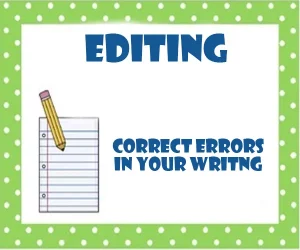High school is about getting intimidated by the bombardment of extensive essay writing. Students usually have piles of essays to tackle, which causes them big-time trouble. Also, writing a mind-boggling essay requires proper planning. But, luckily you don’t have to be a wordsmith to write a concise, persuasive, and clear essay. You have the leverage to seek essay writing service UK and leave all your essay anxiety behind without any hitch. In this article, you can find some essential tips on how to plan an essay.
No matter if you are a newbie or a sound writer, the planning phase is always good enough to challenge your skills. In academic life, students roam around their fellow pals to find out how to write an essay plan but often return with unsatisfactory answers. So, we have sorted out an effective plan that will help you structure a perfect essay in a poof!
If you are wondering how to write an essay plan, your search ends here. Moving forward to the essay plan, dividing your essay into three phases will lead you towards a flawless essay with the potential to satiate high grades.
The first phase is preparation; before indulging in the complex writing process, make your head clear. Be sure about what you are going to present. It includes defining your topic, understanding your assignment, and some solid research. The next phase is writing; in your body of writing, your objective must reflect. Your essay body should be good enough to leave your readers in great pique. Last but not least, revision and proofreading. Evaluating the overall essay is an art that needs perfection. Also, constant revision will ensure that your essay has no grammatical or structural errors.
Also read: 5 Essential tips for writing a research paper
7 Simple and Effective Steps On How To Plan An Essay!
For most students, essays are quite intricate, and it is beyond the bounds of possibility to do all the stages simultaneously. It is manageable yet feasible to break the process into smaller steps and then plan accordingly; it is one of the best ways to get your essay done even when you do not have an adequate amount of time that can be devoted to writing. So don’t stress over your impending essay; take it easier on yourself. Open the essay and start doing it when you feel fresh and focused.
If you are stuck with the essay and cannot get the first sentence out, start writing the notes and ideas on the paper. Despite every possible precaution, sometimes it becomes difficult for students to anticipate the gaps, dilemmas, and possible misinterpretations generated by intricate essays. If your situation is relatable, then there is an immense need for you to have essay writers who can help you figure out how to do an essay plan.
Planning an essay isn’t as dull as it sounds. You just need the right push, and we are here for that. You must have heard that tips and tricks do wonders in adopting new tactics. So here are our top 7 techniques on how to plan an essay.
1) Come up with Your Essay Topic:
Staring at a blank page without a plan on how to carry it forward is a terrifying experience for a writer. Therefore, having a strategy in place before beginning your essay is essential. You may occasionally already have an assigned essay genre or topic, in which case you will save a step. But, if you are not provided with topics, you must come up with potential writing subjects. Additionally, this will influence the kind of essay you will be composing.
So, if you have the option to choose your own topic, try to select one that will keep your attention and that you already know a little bit about. As you determine your perspective and approach on the subject, study primary and secondary literature and make notes. These will serve as support for your arguments.
You have already come this far, which ultimately means you have found the answer to how to plan an essay. So, to come up with a decent topic, try asking yourself the following questions:
- What do I feel particularly enthusiastic about?
- What is the one notion or thought I wish to convey?
- Is there a misunderstanding that I should clear up?
- What is the most effective way to convey this information?

2) Figure out Your Sources and Research the Topic:
Writing down what you already know and what you still need to learn is the next stage after determining how many ideas you require. Start reviewing your notes, class slides, and reading to see if you can spot the core concepts. However, if you cannot generate 5–6 ideas, you need to make more effort and dive into other tactics. Plus, your paper may appear disorganized at this point, but it is fine; don’t get overwhelmed; it’s a part of the process. You’ll benefit from this disarray when you build your pick. Validate your research and sources in the below tactics and find what fits best for your essay.
I) Keep Questioning:
Once you’ve decided on a topic, come up with all the possible supporting points you can make. Start by outlining the fundamentals of your concept and posing what, where, who, when, why, and how questions. But, get over the how to plan for an essay phase; you are already midway!
II) Mind Map Technique:
To come up with connected ideas, you may either use the Mind Map technique or simply make a list of bullet points as you come across them while conducting your research.
III) Organize Sources:
If your subject justifies it and time permits, you might consider conducting brief interviews with subject-matter experts. These will act as the essay’s primary sources.

3) Organize Your Outline with a Hook –Here is how!
Once you’ve finished brainstorming, it’s time to organize the chaos into a more structured format. Even though you may have done your brainstorming on a scrap of paper, you should begin writing your outline because what begins as an outline will eventually turn into your actual essay. You can begin to create your outline once you have a thesis statement. Many people disregard the outline process because they believe it is time-consuming.
However, creating an outline can help you organize your thoughts before you begin writing and save time because you won’t be wasting it by going around in circles or hopping from one concept to another without a clear plan.
The four-paragraph essay is a typical essay format that has the following paragraphs; if you are still on the hunt for the query of how to plan an essay, then have a look below:
- Write Your Introduction
- Write Topic Sentences
- Mention Evidence
- Write Conclusion
Make sure each paragraph in your outline contains just one primary idea. If you make too many points in one paragraph, your reader can become lost. Ensure that each of your primary points relates to your thesis statement, as it will lead you to create a perfect outline for your essay.
4) Begin Writing Your Draft that Grabs Attention:
Opening your draft line should spark the reader’s interest and stimulate their curiosity. Create a hook that ignites your reader to read a bit more to clear their curiosity. It could be a provocative statement highlighting the importance of the subject, an enticing query, or a startling truth.
Let’s imagine we are writing an essay about how humans came across the moon. Our hook can make a compelling claim about the subject and can easily create some bold statements to hook the reader. When you are done with the attention-grabbing part, let’s move forward to tips that can make your writing body appealing. So bid farewell to the days when you ask everyone how to plan an essay as it’s time for some action. Here are some impeccably helpful tips:
- Give each of your primary points at least one paragraph’s worth of explanation.
- Feel free to write longer if any of your primary points demand more than one paragraph a piece.
- It is beneficial to have a brief opening paragraph for any issue requiring two or more paragraphs.
- Try to be as brief as you can.
- If it will help you make your point more apparent, use anecdotal examples.
- A formal academic essay should not contain first-person pronouns.
5) Pay Attention to Overall Topic Organization:
It’s crucial to divide your essay into paragraphs to give it a clear structure. One key topic or point should be the focus of each paragraph.
A topic sentence introduces that concept. In general, the topic sentence should build on the preceding paragraph and state the point that will be conveyed in this one.
Give supporting information after the topic sentence, such as statistics, anecdotes, or quotations from reliable sources. Make sure to interpret, clarify, and demonstrate how the evidence contributes to developing your main argument.
6) Evaluate Each Paragraph with No pressure:
It could be very tempting to just sit down and start writing if you have a tight essay deadline. But you must plan out your essay’s content before you start writing, at the very least.
Ideally, you already have a position that you would like to defend. The next step is determining how many body paragraphs are necessary to support that argument (and to meet the word limit criteria).
Make sure every paragraph in your essay has a purpose while designing its format (we call this the topic sentence). A paragraph typically contains 6 to 10 sentences, translating to 200 to 250 words on average.
So many questions arise like how to plan an essay, how you choose, and how many body paragraphs to include in your essay. Divide your paper into sections as your initial step. Say you have 1500 words to write, allot 150 words for both your introduction and your conclusion. Decide how many body paragraphs you’ll need to support that argument next.
7) Edit Your Draft and Feel Happy-go-lucky!
Here is how to plan an essay at the final stages. After completing your initial draft, edit and check it to ensure that all grammatical and spelling errors have been eliminated. When doing this, you can use software to have new “eyes” check your work, but don’t just rely on software; always review your work at least once yourself!
When editing, be mindful of the language you use. Get rid of any extraneous words, and practice substituting strong verbs for weak ones.
Additionally, ensure that your essay’s information is accurate, especially when you cite other sources.

Conclusion:
By following the above tips on how to plan an essay, you can craft a perfect essay that will help you secure good grades in your essays.


